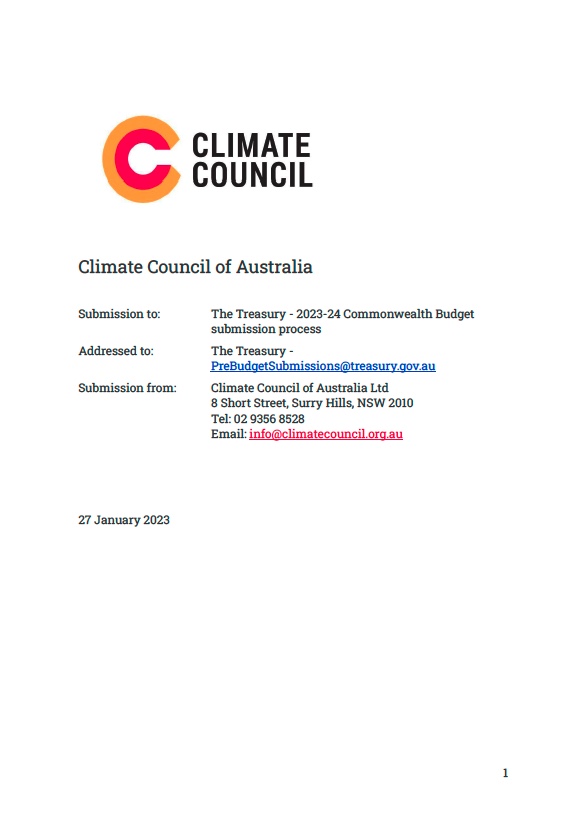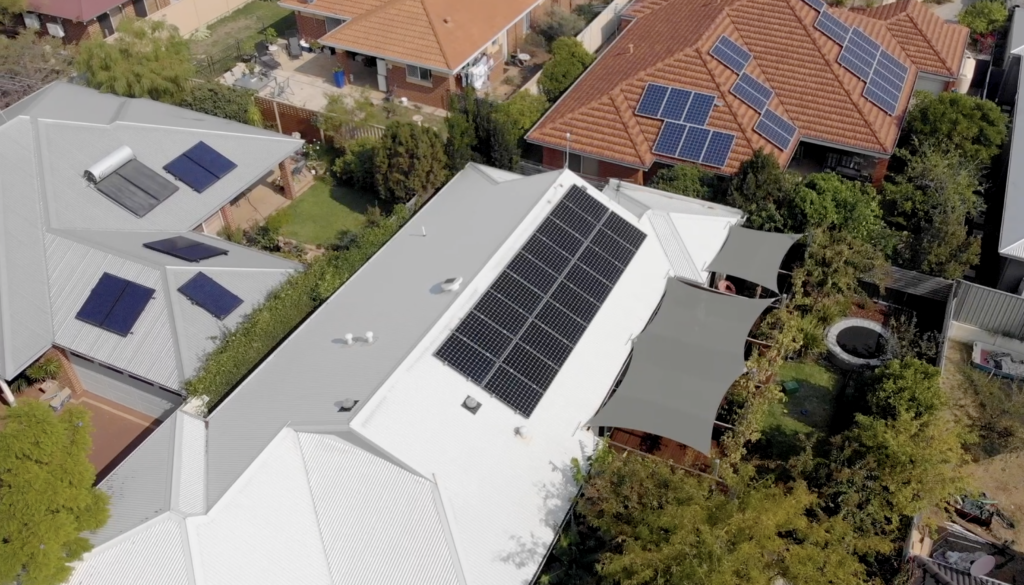The Climate Council’s recommendations are summarised below; further discussion and supporting data on each are outlined through this submission.
Energy transformation:
Recommendation 1
The Australian Government work with states and territories to advance investment in, and rapid delivery of, all priority transmission infrastructure projects identified by AEMO as necessary to support a 100 percent renewable electricity grid.
Recommendation 2
The Australian Government develop a package of financial and policy measures to support the electrification of homes and small businesses, including:
- A concessional financing facility for capital upgrades and replacement of gas appliances – delivered in partnership with the states and territories;
- A progressive phase out of gas appliances by requiring new residential and commercial buildings to be all-electric and banning replacement gas appliances from 2025.
Recommendation 3
The Australian Government support and enable energy transformation by local government through the establishment of a Local Government Climate Innovation Pilot Fund and/or a zero interest loan facility for investment in proven zero emission energy solutions.
Recommendation 4
The Australian Government establish and properly fund a National Energy Transition Authority, tasked with planning for – and maximising the benefits from – Australia’s energy transformation. The Authority’s priority tasks would include negotiating firm closure dates and developing transition plans for Australia’s fleet of coal fired power stations.
Recommendation 5
The Australian Government undertake a detailed review of existing fossil fuel subsidies currently included within the Commonwealth Budget – including fuel tax credits – as a first step towards the removal of these subsidies in future budgets.
Clean transport:
Recommendation 6
The Australian Government design and implement strong fuel efficiency standards as part of a holistic National Electric Vehicle Strategy. The proposed parameters for Australian fuel efficiency standards should be released alongside any investment or other enabling initiatives linked to this Strategy in the 2023-24 Commonwealth Budget.
Recommendation 7
The Australian Government support states and territories to electrify public transport fleets, strengthen public transport services and significantly improve infrastructure for active transport through shared investment under the Commonwealth infrastructure investment program.
Recommendation 8
The Australian Government develop a transport sector-wide plan for decarbonising transport beyond personal transport, addressing key sub-sectors including aviation, logistics, infrastructure and shipping. This plan should include identification of the viable transition pathways for, and timeframes for implementation by, each sub-sector.
Supporting global climate action:
Recommendation 9
The Australian Government commit to a substantial increase in Australia’s overall annual contribution to international climate finance, bringing it into line with a fair share of existing global efforts.
The Australian Government announce an initial financial contribution to the new global loss and damage finance facility.
Recommendation 10
The Australian Government commit to scaling-up investment in climate and energy capabilities across government departments including the Department of Foreign Affairs and Trade, as part of an ambitious and comprehensive diplomatic strategy aimed at accelerating the global shift from fossil fuels to clean energy
Strengthening resilience:
Recommendation 11
The Australian Government develop an integrated National Adaptation and Disaster Resilience Strategy and supporting action plan with set deadlines for implementation.
Recommendation 12
The Australian Government conduct a National Climate Change Risk Assessment as a baseline for all levels of government to focus on and coordinate climate adaptation and mitigation efforts. The Assessment should underpin production of a national strategy and plan enabling climate risk information to be mainstreamed across all government agencies and sectors and at-risk communities.
Recommendation 13
The Australian Government work closely with state, territory and local governments to develop a clear framework for improving community resilience when rebuilding after disasters with federal funds – including developing a process for managed relocations of communities which face ongoing and significant risks due to climate change.
Recommendation 14
The Australian Government develop and fund programs which build community resilience to extreme weather and disasters, using examples such as Community First Responder programs as a basis
Strengthening Australia’s climate science capability:
Recommendation 15
The Australian Government should commit commensurate and sustained funds and resources for climate research and research coordination in Australia.
Recommendation 16
The Australian Government should commit to funding next-generation regional climate projections for Australia.
Recommendation 17
The Australian Government should step up funding for basic science in universities and government agencies.
Recommendation 18
The Australian Government should commit to funding and resourcing improved climate modelling capability and model development.
Recommendation 18
The Australian Government should commit to providing sustained funding to facilitate engagement and formally sustain Australia’s involvement in, and contribution, to key global science programs.











